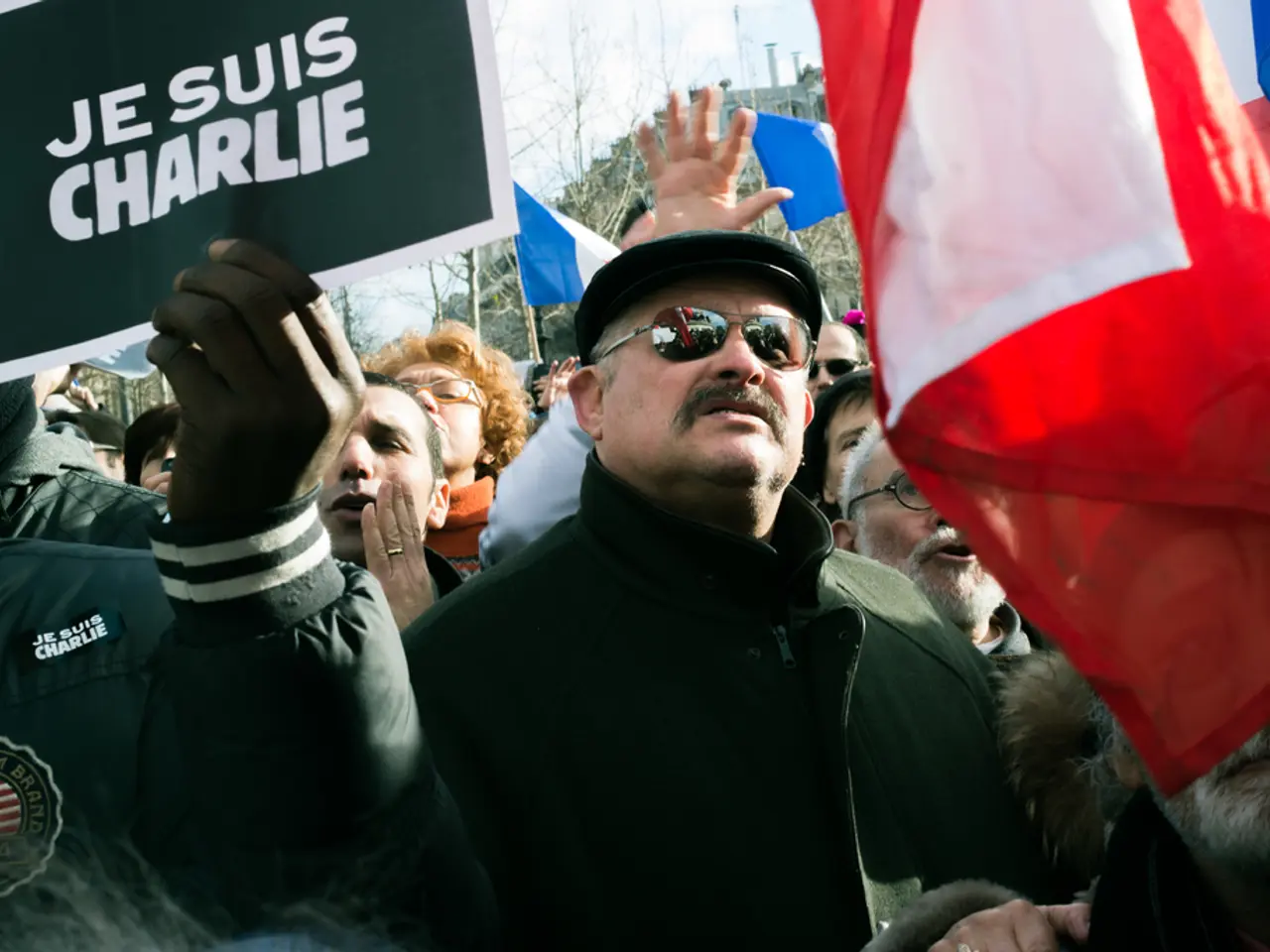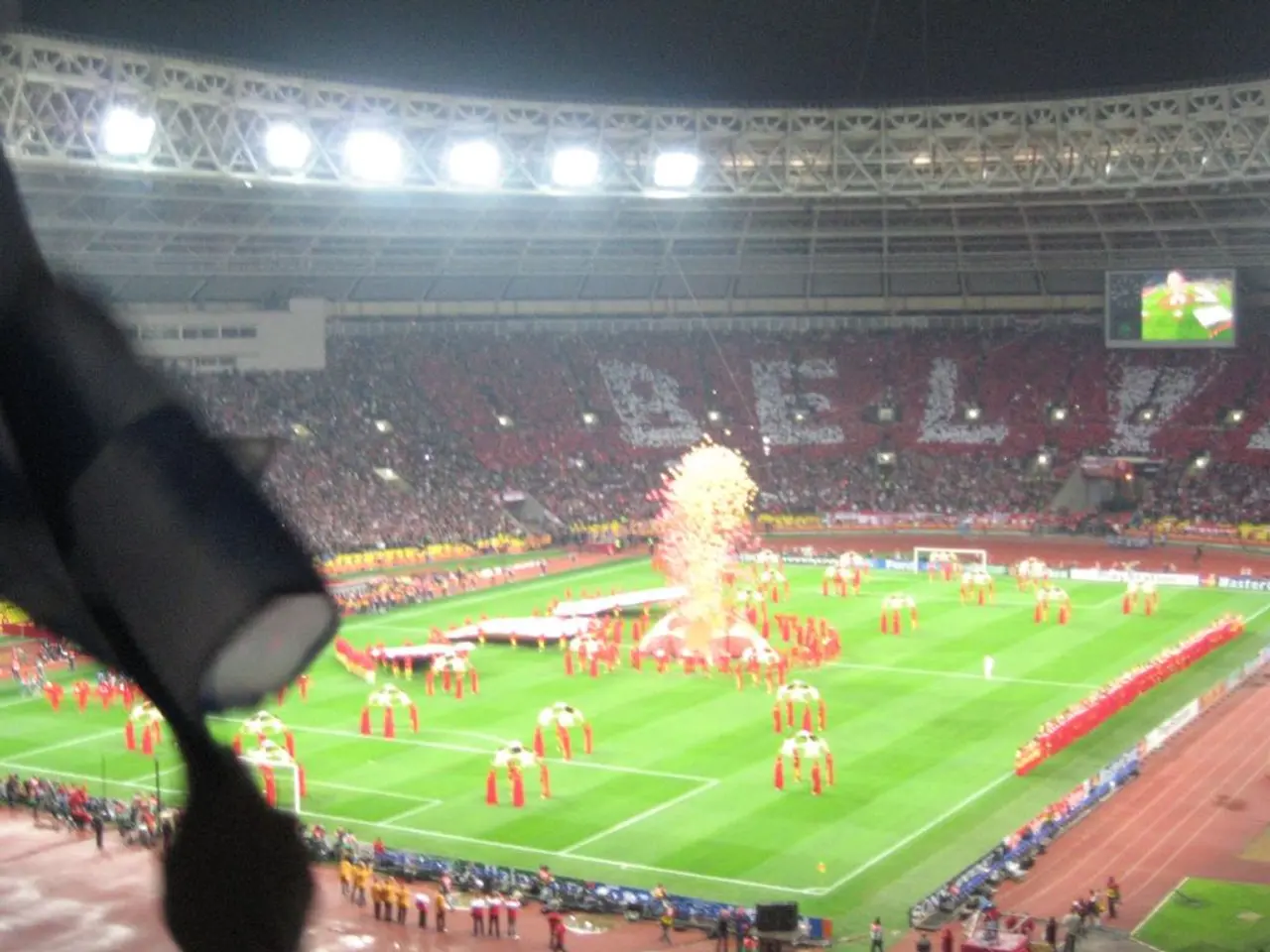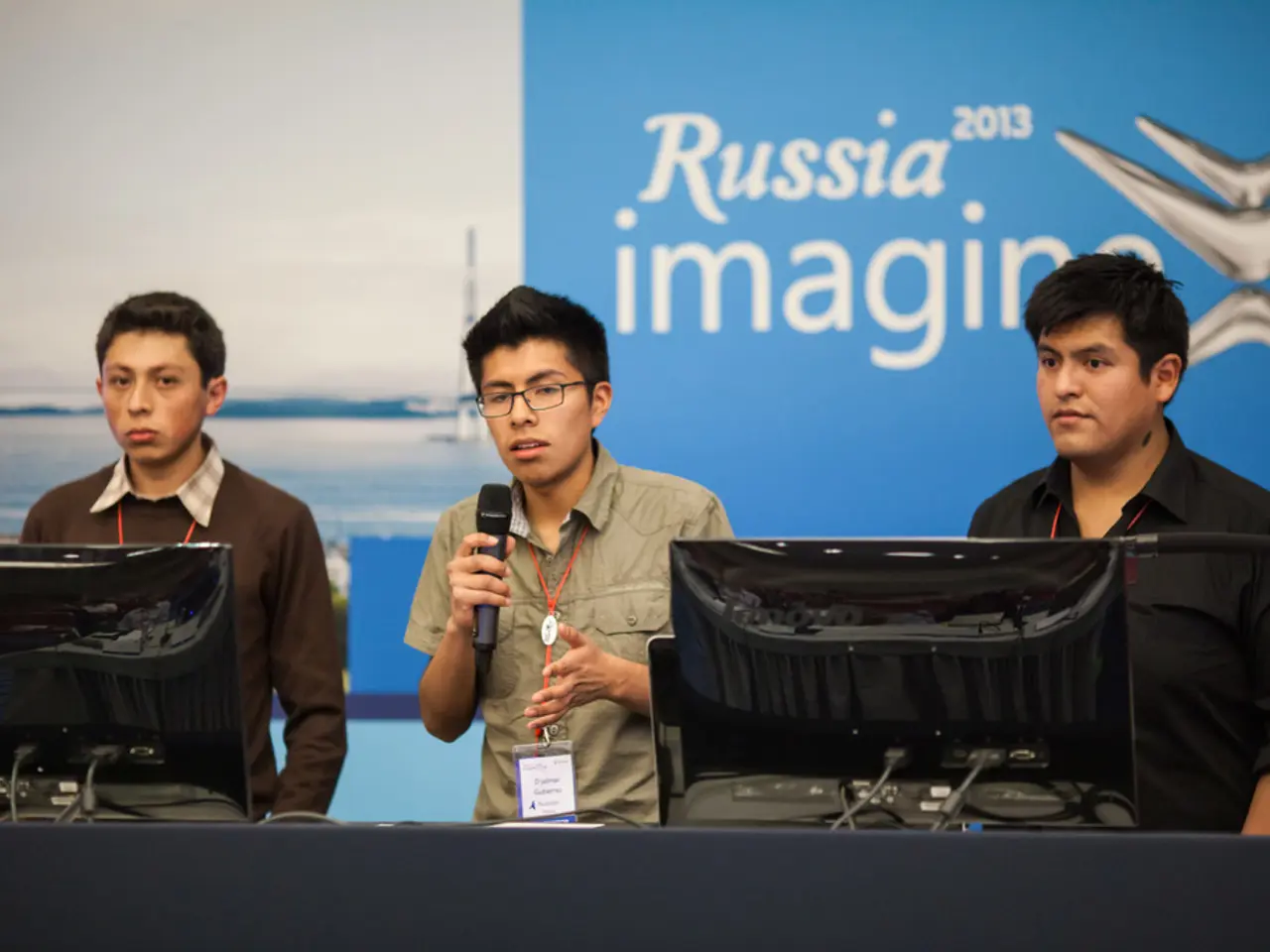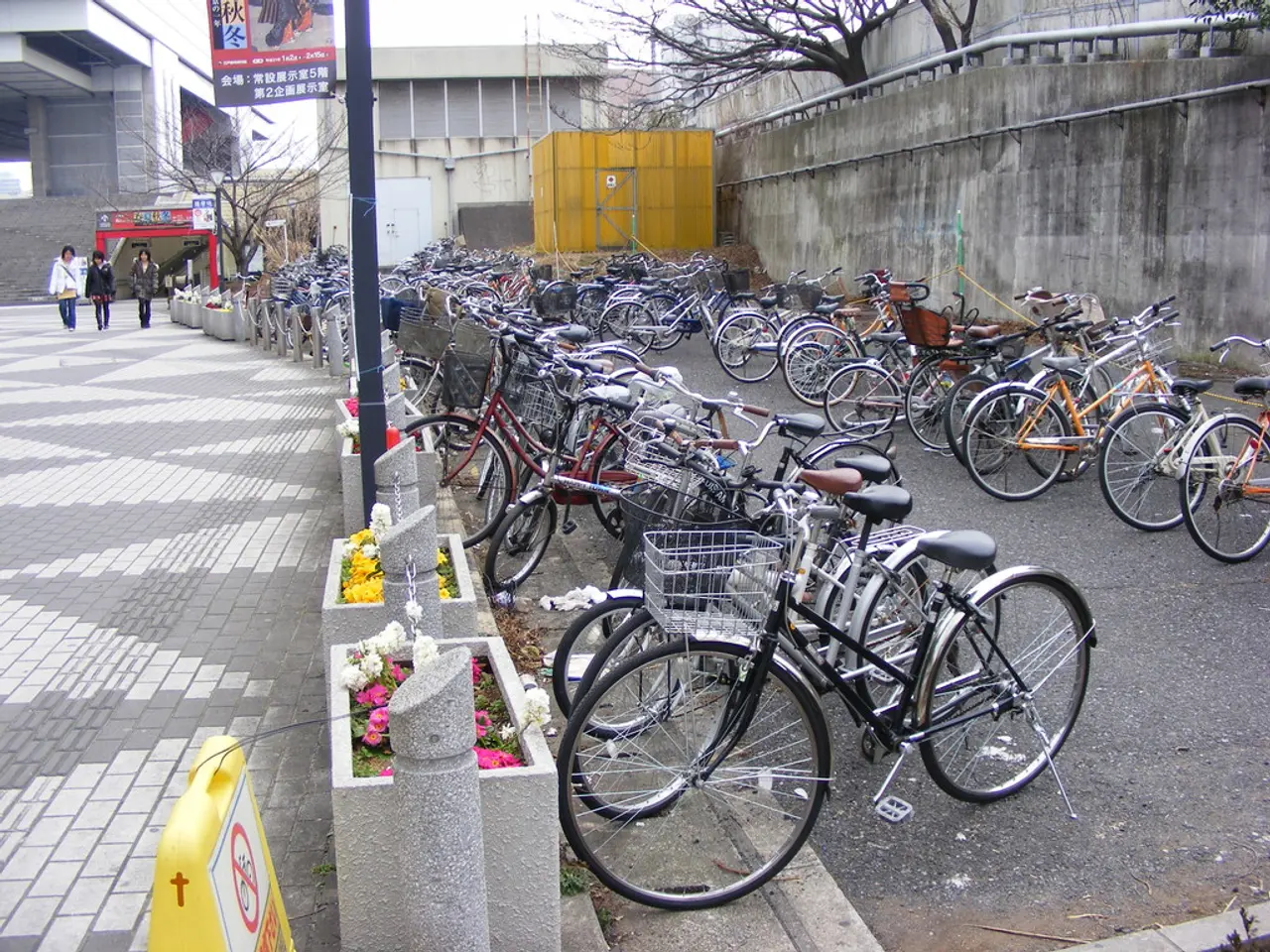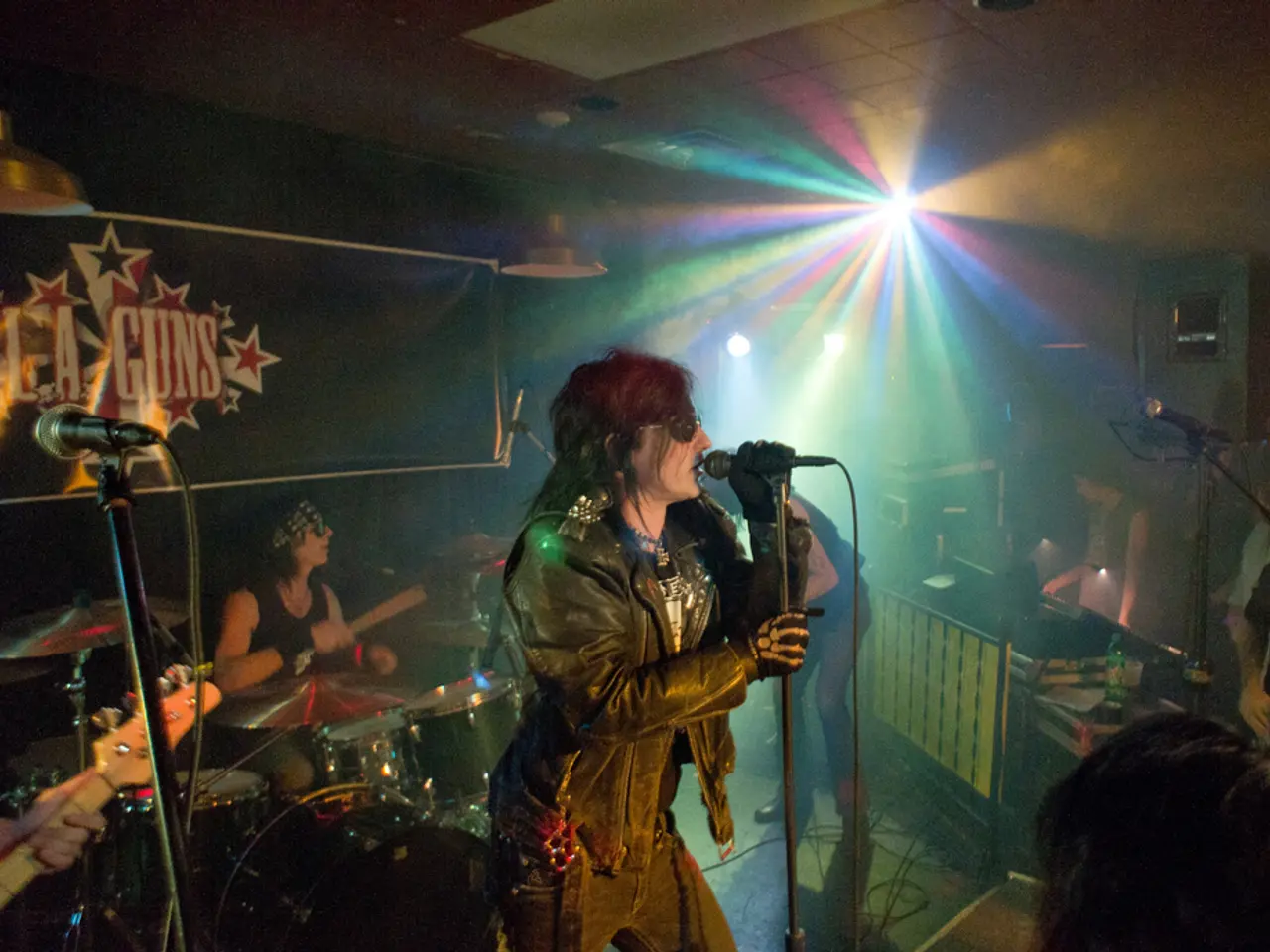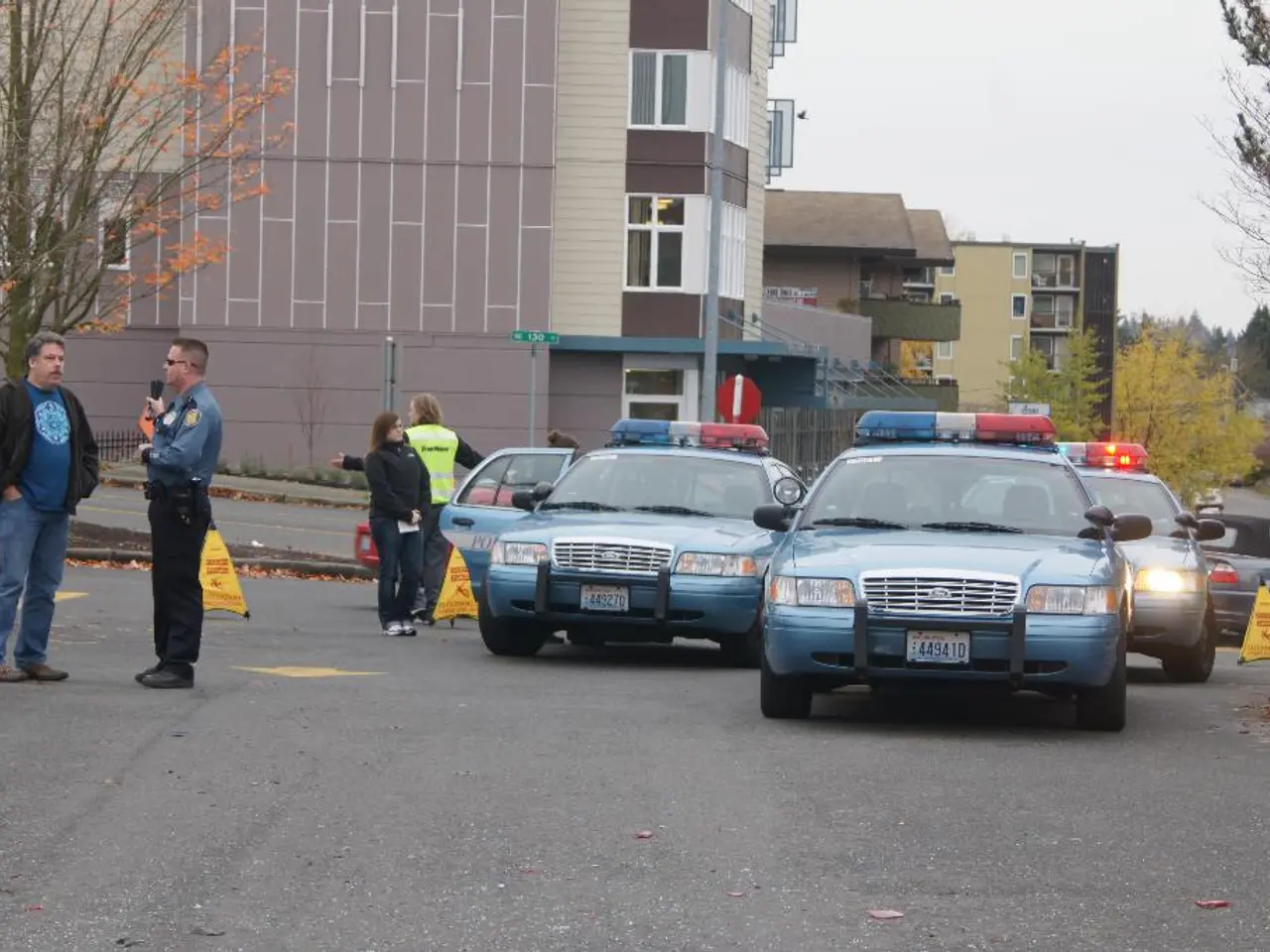Supporters of Bolsonaro gather in Copacabana, advocating for pardons for individuals implicated in the coup allegations
Brazilian Democracy Under Strain: Mass Protests and Political Polarization
Brazil has been grappling with a series of political demonstrations since early 2023, with the focus centring on calls for amnesty for participants in the January 8, 2023 riots and opposition against key political figures such as former President Jair Bolsonaro and current President Lula.
The timeline of these events is marked by significant moments. On January 8, 2023, riots involving Bolsonaro supporters attacked government buildings in Brasilia, leading to hundreds facing trial or imprisonment. This incident sparked ongoing debates about amnesty.
Fast forward to July 13, 2025, when Jair Bolsonaro publicly advocated for granting amnesty to the January 8 rioters, claiming it would ease economic pressures linked to U.S. trade tensions.
Large protests occurred in São Paulo on August 1, 2025, demanding impeachment of President Lula and amnesty for Bolsonaro and his supporters, illustrating the extent of political division and mobilization at grassroots levels.
On August 5, 2025, Brazil’s Supreme Court ordered house arrest for Bolsonaro, citing his role in instigating attacks on the Judiciary and disrespect for legal measures. This decision followed mass rallies by Bolsonaro supporters pressing for Congress to pardon those involved in the 2023 riots.
Public opinion remains highly divided over Bolsonaro’s house arrest and its implications, reflecting broader societal splits on democratic norms and political legitimacy.
The political demonstrations and legal confrontations have intensified polarization, splitting the public and political class along pro- and anti-Bolsonaro lines, challenging institutional stability. The Supreme Court’s active role in prosecuting Bolsonaro and attempting to regulate political dissent has raised debates about the balance between upholding the rule of law and protecting freedom of expression.
Bolsonaro’s supporters perceive judicial actions as politically motivated persecution, claiming Brazil is sliding into dictatorship, a rhetoric that risks undermining democratic consensus. Conversely, the judiciary and other institutions emphasize the necessity of legal accountability to safeguard democracy from anti-democratic forces advocating coups or foreign interference.
Ongoing discussions among legal and political experts highlight concerns about Brazil’s institutions, military involvement, and political landscape stability in the lead-up to the turbulent 2026 elections.
The protests have not been limited to São Paulo. In Brasilia, a demonstration took place in front of the Central Bank, gathering around 4,000 people, and was attended by Senator Izalci Lucas (PL-DF) and deputies Bia Kicis (PL-DF) and Caroline de Toni (PL-SC). The event in the capital of Para counted with the presence of the former first lady Michelle Bolsonaro, and a video of Bolsonaro accompanying Michelle's act in Brasilia was shared on social media, highlighting the former president with an ankle bracelet.
In Belo Horizonte, Nikolas Ferreira, a deputy from Minas Gerais, participated in a demonstration against Lula and Alexandre de Moraes before boarding a flight to Sao Paulo for a demonstration on Paulista Avenue. The demonstration in Belo Horizonte included calls for the removal of Lula and Moraes, as well as calls for amnesty and the end of privileged forums (PEC 333).
Claudio Castro, the governor of Rio de Janeiro, and Flavio Bolsonaro, a senator from Rio de Janeiro, participated in a demonstration for amnesty on Copacabana beach, Rio. Flavio Bolsonaro thanked the United States for helping them rescue their democracy and celebrated the presence of the public at the event, mocking the institutes that usually measure it on social media.
Notably, Jair Bolsonaro participated in the demonstrations via videocall in Belo Horizonte, Brasilia, and Belem. Nikolas Ferreira made a nod to Bolsonaro's son, who is in the United States negotiating Trump administration sanctions against Alexandre de Moraes.
As Brazil approaches a critical electoral juncture in 2026, the ongoing political conflict and institutional strain pose serious challenges to democratic norms, judicial independence, and social cohesion.
- The political demonstrations and legal confrontations in Brazil, concerning issues like amnesty for riot participants and the role of key political figures, indicate a significant impact of war-and-conflicts and politics on policy-and-legislation, as they have intensified polarization and challenged institutional stability within the States.
- The ongoing mass protests and political mobilization in various States, such as São Paulo, Brasilia, Belo Horizonte, and Rio de Janeiro, have shed light on general-news topics, including the role of politicians, the judiciary, and military involvement, all aspects that have raised debates about democratic norms and political legitimacy in the country.
